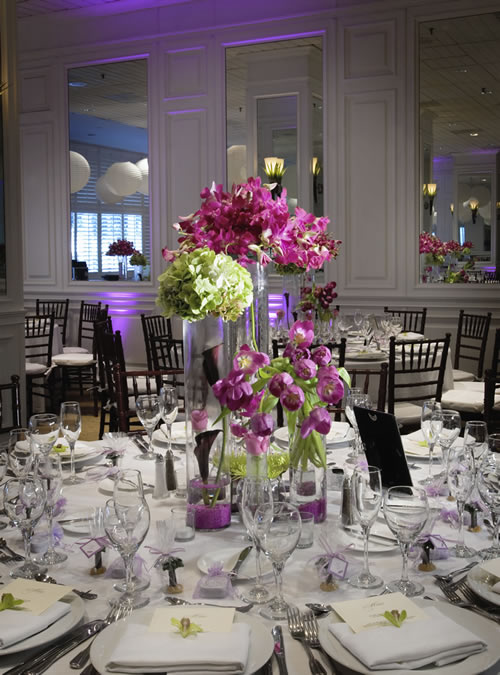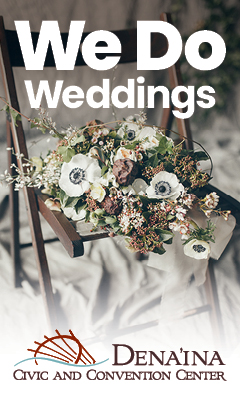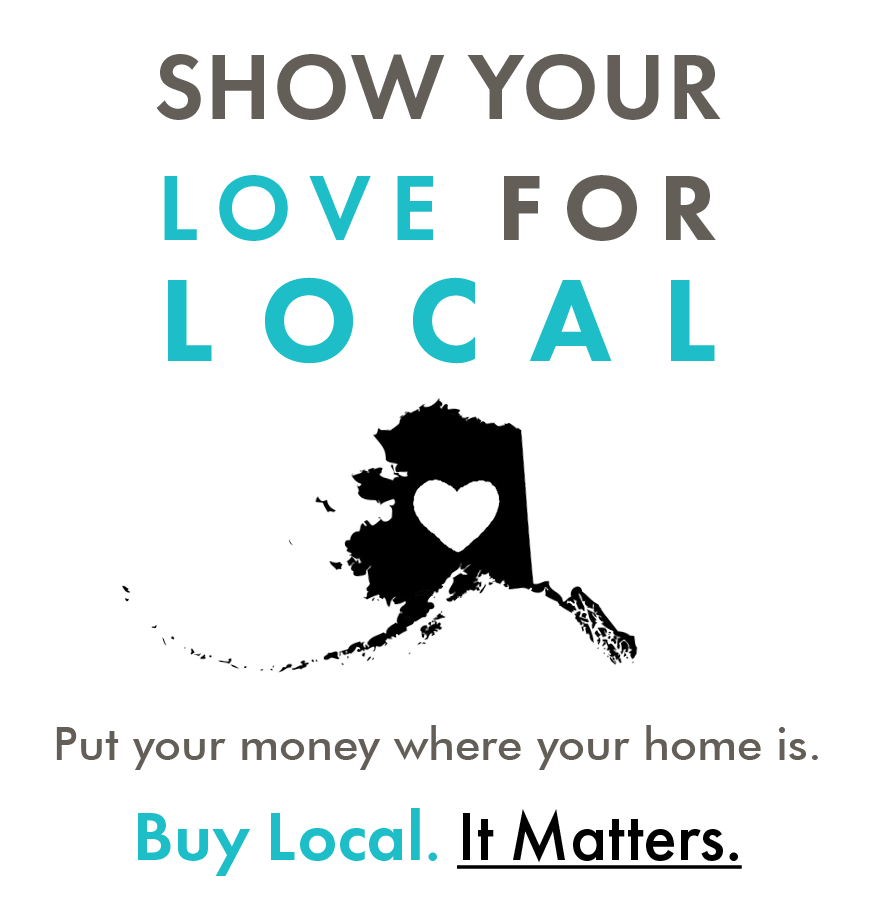
A Well-Planned Wedding
Alaska’s planning pros share tips and advice for planning a perfect celebration
On the day of your wedding, your job as the bride is to focus on family and friends, look beautiful in your gown and pledge your love to your spouse-to-be. It’s not your job to worry about weather problems, missing centerpieces or a lopsided wedding cake. Good planning can prevent many wedding day mishaps, but when it comes to unforeseen calamities, a professional wedding planner can save the day.
Why Hire One?
Even for hands-on brides, hiring a professional planner can shortcut many of the decisions and details that go into organizing a wedding of any size or budget. “Wedding planning isn’t just about logistics; it’s about providing an amazing experience that’s also cost-effective,” explains Lori Lambert, sales and program manager with Logistics LLC. While most brides have specific ideas about what they want their day to look like, a good planner can help hone those ideas – or provide suggestions for those brides who aren’t sure what they want.
While not all weddings are exactly the same, the professionals who plan those celebrations have the experience and knowledge that comes with practice. “We’re not just doing one wedding; we’re doing weddings,” says Erin Chalstrom, owner of Your Story Event Planning. One advantage that comes with this experience is relationships: A professional planner will already have a list of vendors with whom she’s developed a working relationship, cutting down on the hours a bride and groom might spend interviewing potential florists, caterers and DJs.
Planners also take the pressure off the bride by playing the “bad guy,” suggests Rebecca Lien, owner of La Boum Events. “People hate talking about money, but because I already know what each vendor’s bottom-line is, I can be the negotiator.”
She adds that brides tend to assume the rehearsal dinner will solve a lot of problems and go smoothly, though that’s rarely the case. “You can’t keep people on task, everyone wants dinner. That’s where I come in: I keep everyone organized so the bride doesn’t have to spend her evening bossing people around. She has the planner to support her.”
A good wedding planner will pay for herself, adds Lien. “Even for a small budget, hiring a wedding planner will end up saving you money by helping you focus on the things you want and keeping you from blowing the budget on items you don’t really need.”
Other Options
But if you feel you won’t need a full-scale wedding planner from beginning to end, or have the budget to pay for one, there are other options. “If you don’t have anything else, a day-of planner is essential for your peace of mind,” says Lambert.
A day-of or week-of planner can touch base with all the vendors, tackle last-minute problems and take over the reins on the bride’s special day. Having an on-site person who can serve as a point of contact ensures the bride isn’t bothered with things like a damaged wedding cake, vendors who show up late, or missing flowers. Says Lambert, “When the bride walks in, it should be a wow for the guests and for the bride. Any problems, the day-of planner takes care of those” – leaving the bride free to relax and enjoy the moment.
Consultation is another option some planners offer. “My philosophy is that most women have always dreamed of planning their wedding,” says Lorell David, owner of i do Events. “For brides who have all their plans but need simple guidance, I’ll offer my services as a consultant who can be emailed or called whenever you just want advice.” For the independent or budget-conscious bride, David suggests asking planners if they offer consulting services by the hour.
Top Tips
Whether you’re a do-it-yourselfer or want a planner’s help from the very beginning, Alaska’s expert wedding planners offer some key advice for every bride-to-be, starting with planning to plan: “Professional planners are like a human checklist, but you can get actual wedding checklists in magazines or online,” says David. With a thousand details to keep track of, even a generic checklist can help keep you on-task.
Another option is what Chalstrom calls the “Big Day Binder”: A place to keep ideas for your vision of the wedding day, plus vendor contracts, timelines and receipts. “I see a lot of brides who have notes in all different places. Having one cohesive binder allows you to bring all the random pieces together.”
“Have a plan and stick to the plan” is Lien’s biggest piece of advice. She suggests that the bride and groom decide what their goal for the day is – whether it’s throwing a party for friends and family, focusing on religious values or having an intimate ceremony – then let that goal guide every subsequent decision. “Décor, music, whether or not to have favors: those decisions will all be in line with the goals you set.”
Sticking to your goals will help keep you under budget, as will doing without the inessentials. “Decide what you don’t care about – and then don’t do it,” says Lien. Don’t feel obligated to have a ring bearer pillow just because tradition dictates it. Instead, Lien suggests focusing on one or two impact items. “No one remembers the favors from a wedding. But picking where your main focus will be, whether it’s the music, photography, food or flowers, then doing something really fabulous with those, that’s what will make the day truly memorable.”
Above all else, the experts’ main advice is to delegate as much of the work as possible, then enjoy the day itself. “Most of the things you plan for are going to be fine,” says Lien. “It’s the things you can’t foresee that go wrong, but having a team of good vendors and a top-notch planner who’s on your side will minimize those things.” That way, on your special day, knowing that anything that goes wrong is in someone else’s hands, you can take a deep breath, relax and walk down the aisle into a well-planned future.








